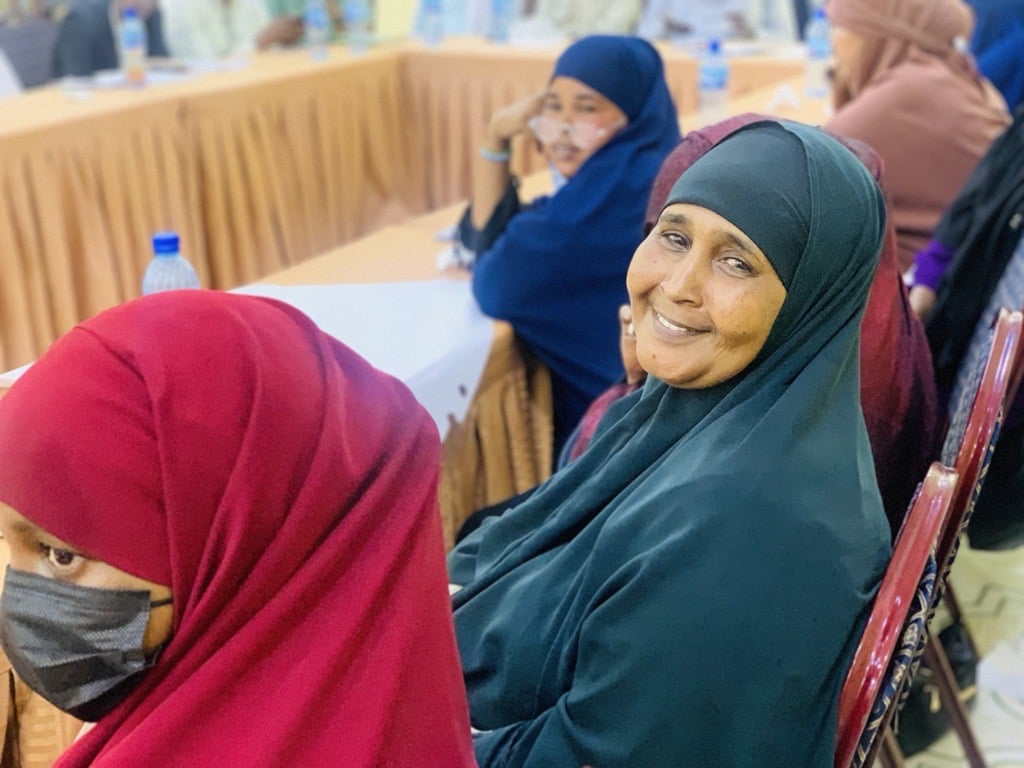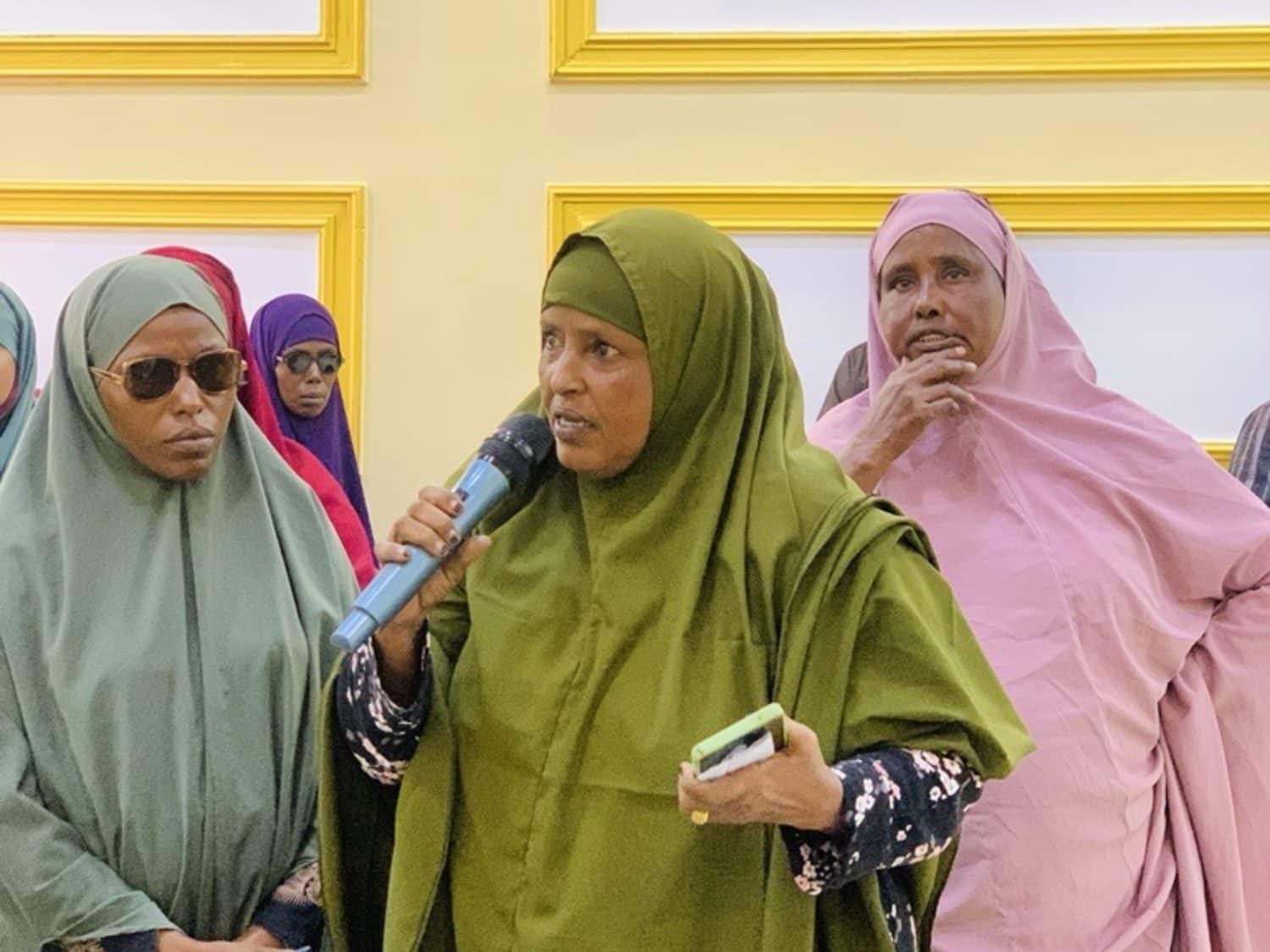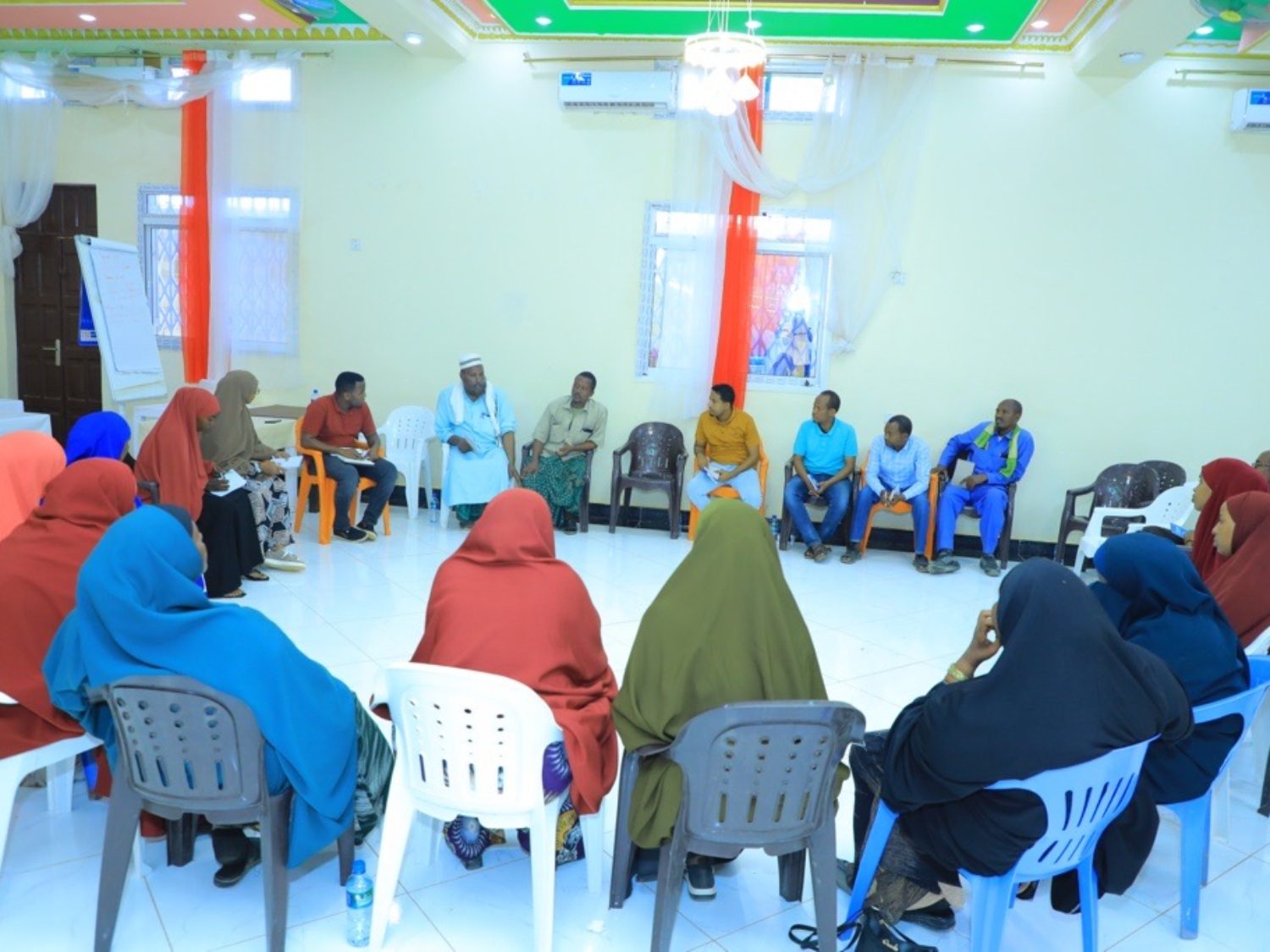

EAI Convenes Workshop in Somalia to Train Trainers in Trauma Healing
EAI staff engaged in a Training of Trainers workshop with the goal of equipping EAI’s Somali-based staff (and our local partner staff) with strategies to enhance support systems for both individual and collective survivors of prolonged conflict.
A Project of —
Nabadgelinta Soomaaliya

EAI staff engaged in a Training of Trainers (TOT) workshop with the goal of equipping EAI’s Somali-based staff (and our local partner staff) with strategies to enhance support systems for both individual and collective survivors of prolonged conflict. The workshop was part of the Nabadgelinta Soomaaliya project, overseen by the Institute for Migration, which seeks to transform how individuals, communities and institutions in Somalia can work together to create fairer, more efficient, and more accountable systems for security and justice.
It also facilitated the sharing of specific trauma narratives to explore how such experiences affect trust levels and support mechanisms among both formal and informal actors. Our Somalia team tailored these discussions to align with the priorities of community groups identified through the ABPs and to build trust among the Ministry of Justice, Ministry of Internal Security and community actors.


The trainers then rolled out these sessions to community stakeholders (90 in Kismayo and 81 in Baidoa) previously chosen by their groups to represent their top three priorities. Sitting in a circle to symbolize equality, participants were encouraged to share their victim/survivor stories to foster collective healing within the group. Religious leaders opened the session with Islamic stories that looked at how Muslims worked together to solve their problems to help set the mood for trust and collaboration. Older participants who had witnessed the devastation of the civil war recounted stories of death and destruction, while younger ones described their experiences living under warlords, clan conflicts, and the violence of the VEO Al-Shabaab (AS).
After these sessions, participants identified various support systems for trauma survivors. These include families who provide emotional reassurance, practical assistance, and a sense of belonging, and communities that offer opportunities for mutual aid, social connection, and shared healing experiences. Formal institutions also provide structured support mechanisms, professional assistance, counseling services, and legal aid. Additionally, informal networks contribute by offering informal care, empathy, and companionship, serving as sources of emotional support and solidarity.